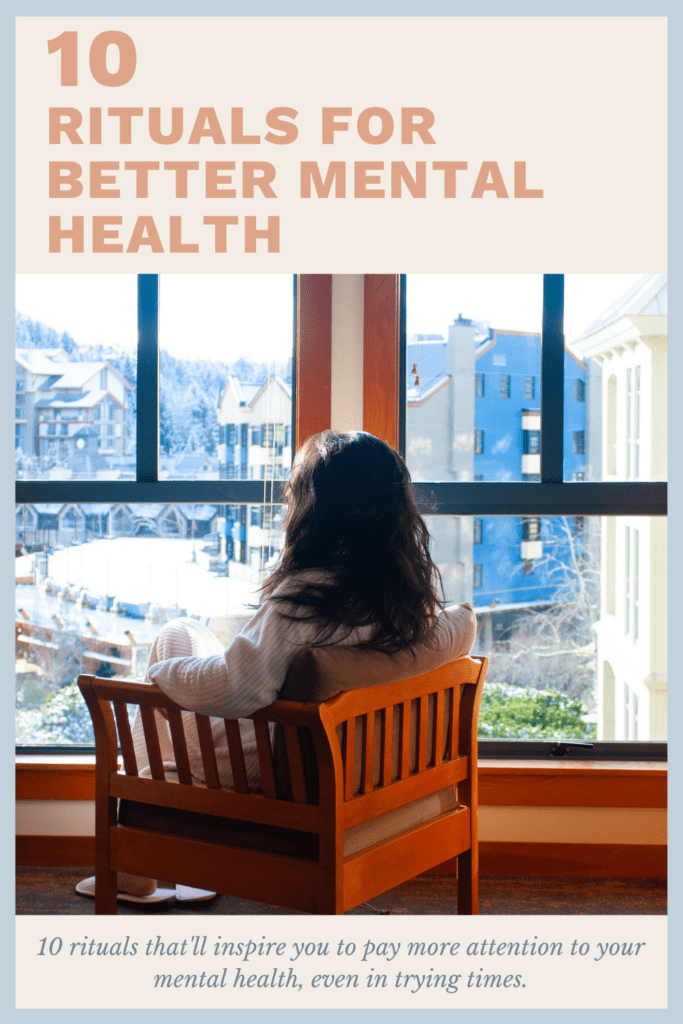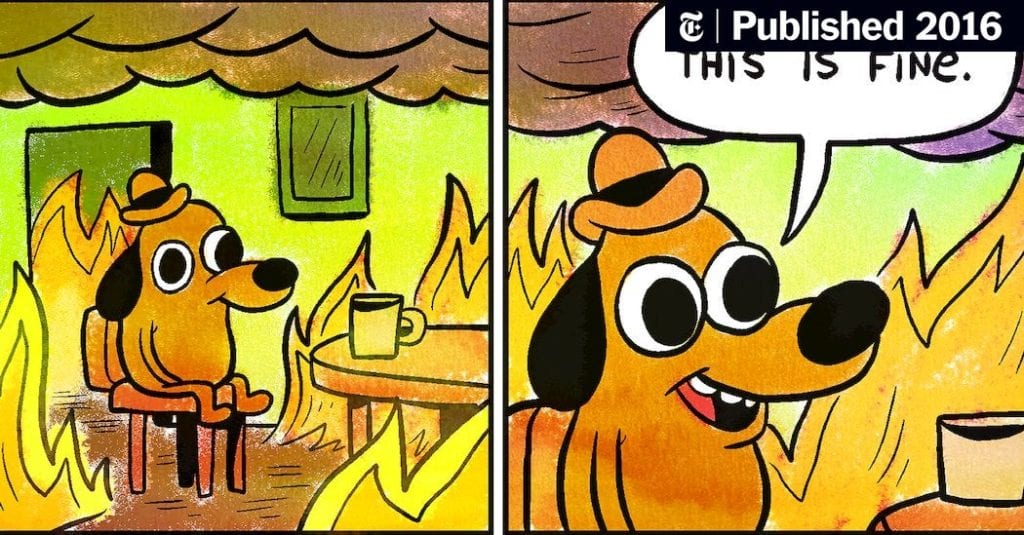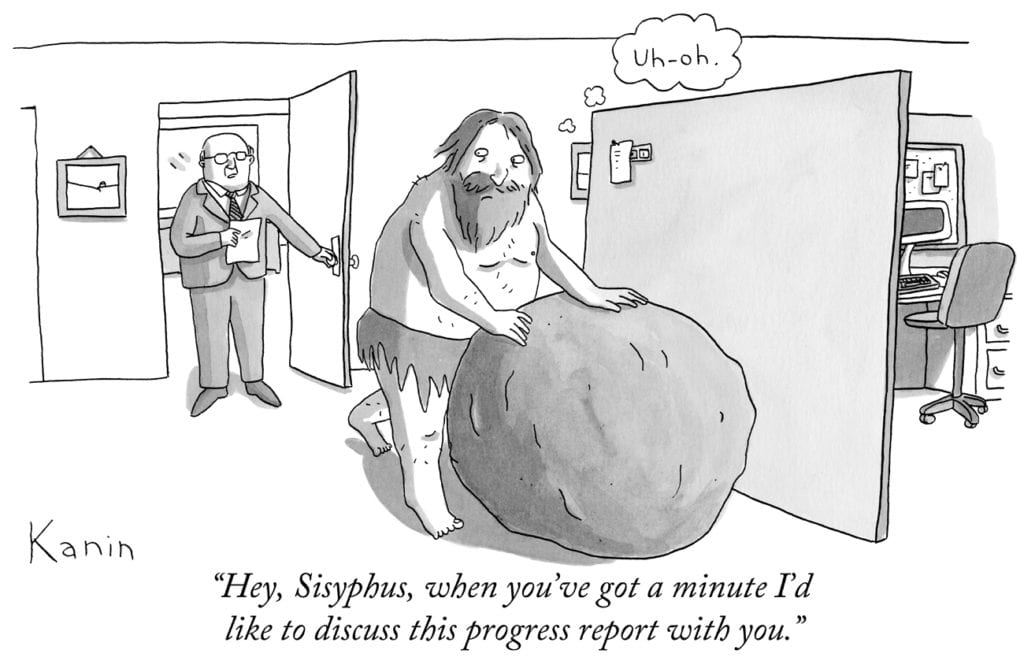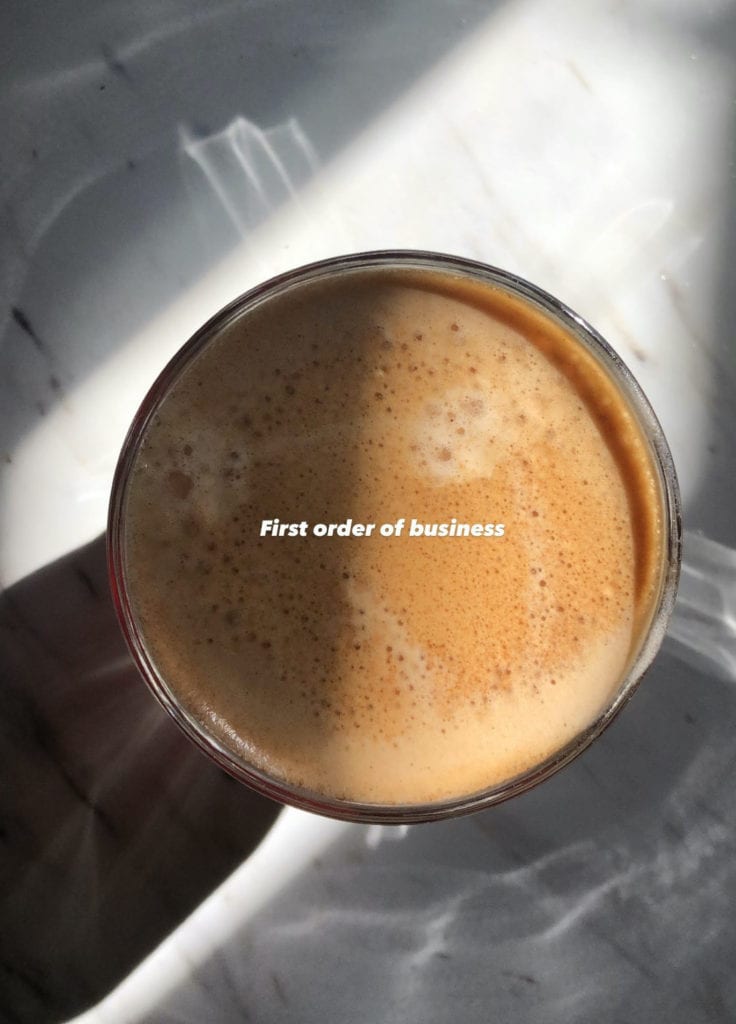This year is (finally) coming to an end and it’s the time of the year where we reflect on the things that happened and start thinking about what we hope to accomplish for the upcoming year.
For me (and a lot of others), the aftermath of 2020 has inspired me to continue to prioritize mental health in the new year.
I already knew 2020 was going to be the year of ultimate burnout before it even started. I was tired, getting easily irritated and questioned a lot about what would be next for me.
I wasn’t happy.
On top of that, the pandemic happened and, well, you know…

So, let’s rewind to last year, the beginning of 2020.
For those that don’t know, I’m a freelance digital marketer and while being on social media and keeping up with news and trends is a part of my job, I was noticing that it was making me anxious and it had become the main source of my burnout.
Like most problems, all roads to recovery start with acknowledging that you have one. I wouldn’t say I’m the most intuitive with my emotions so it took me a bit longer to realize that 1.) I had a problem and 2.) I needed to find the root of my problem.
I was social media fatigued beyond belief.
Also, the insidious “hustle” culture of digital media freelancing (which I have taken on full-time this year) combined with the constant covid-19 news bombarding my feed was affecting my mental health.
Initially, I was feeling frustrated more than anything.
I was frustrated at myself for having these feelings, I felt like it was getting in the way of “using this time to be more productive”, a sentiment shared by a group of those who seemed to be thriving amid chaos.
I knew that the intentions of this advice weren’t mean to be harmful but for those like me, in Camp Meltdown, felt like I was losing my mind and that if I wasn’t “using this time to be more productive” then I wasn’t working hard enough and that I should feel ashamed.
So, it took me a while to understand these feelings. I was rushing for an answer for internal peace not knowing what it was I was searching for. But knew I wouldn’t be able to find my answers if I didn’t at least…
try.
So I did. Now, the easiest answer to this would be to turn a blind eye to all the negative news, delete all my social media and shutting down work.
But, I prefer to live in reality and things just don’t work like that in real life. Life isn’t supposed to be perfect (and it would be pretty boring if it was) and can be a little messy at times. And since we’re always going to live in tandem with some form of chaos, I was more interested in learning better ways of handling negative emotions under stress.
What helped for me was incorporating new day-to-day rituals where I devout time for activities that help put my mind at ease.
Here are 10 things that I did (and still trying to do) to help navigate emotions through trying times. These are some things that I found helpful but remember, mental health, like physical health, needs constant effort. I hope you find something on this list that will inspire you to pay more attention to your mental health.
1. Feel all the feelings
Like I mentioned earlier, at the beginning of 2020, I was going into the new year already burnt out and on top of that, I was frustrated at myself for feeling like I was dragging my feet behind everyone else.
Initially, I was thinking that this feeling would pass and all I needed to do was to push through, but I realized that the more I pushed myself, the more I felt like I was setting myself on fire.

So pushing through was not the solution but was a way for me to ignore underlying issues.
So I decided to do a little introspection, I permitted myself to feel all the feelings and asked myself…
”Why am I feeling this way?”
followed by, “What’s making me feel this way?”
and, “How can I help myself?”
Honestly, the answers didn’t come right away, it took a while since I was also fighting the urges to ignore these issues.
2. Start small with your mental health
Unfortunately, problems and feelings don’t always go away in one day, I know because I’ve tried and failed every time with a bandaid solution only to come back to square one.
So instead of retail therapy, maybe it’s worth investing in real therapy. Temporary solutions may make you feel better at the time but probably won’t fix the larger issue at hand. The last thing you want is a Sisyphean Cycle effect. Poor Sisyphus was punished by being forced to roll an immense boulder up a hill only for it to roll down every time it neared the top.
The idea is that you don’t want to relive the agony of cycling through temporary solutions that don’t work.

The key to this is to start small, identify those momentary distractions that won’t contribute to your overall goal.
For me, I had to learn to let go of non-helpful attitudes like blaming myself and the need to rush for a solution. I also had to let go of things like emotional eating and buying random things online. Yeah, sure, it felt good at the moment but didn’t solve a thing.
When everything seems overwhelming, start small.
3. Declutter your space
We’re spending more time at home these days which means that clutter is quick to accumulate in the background when we’re trying to do it all at home.
Now, I’m not saying you have to Marie Kondo your whole apartment and say thanks to each item of clothing. What I’m saying is that a clean and a decluttered home can help improve your mental health.
I like to start with decluttering by going through things that either don’t serve a purpose or inspire me anymore. When purging through my things, I like to group items in a ‘donate’, ‘keep’, and ‘throw-away’ pile.
It’s true what they say, you’ll feel as though you’ve gotten rid of some baggage (heh). Cleaning helps release endorphins and decluttering can help you improve your focus.
4. Create a space that inspires you
Whether it’s a meditation corner, reading nook, or a home office, find a space in your home where you can dedicate time for personal growth.
For me, it’s my office/library.
It’s a place where I do most of my work but also a space that fuels my creativity. I like to hang up artwork and have memorabilia around to help remind myself of what brings me joy when I’m feeling uninspired or feeling like I need a mental health break from whatever I’m doing.
5. Talk to someone about your mental health
As humans, we’re always finding answers or a reason for things.
Sometimes, it’s difficult to pinpoint depression and burnout as the reason why you may be responding to things/other people differently. We’ve been conditioned to keep on going until we find a “valid” reason to stop, and sometimes, it’s hard to recognize your stress as a valid reason to pause and reflect before an ultimate burnout.
I know I’m not the only one who struggles with this, I believe that everyone experiences this to some degree. But I find that being honest with yourself is the first step to forgiveness, which is another step closer to trying to get better. Forgiving yourself for the fact that you’re not working at the rate you’re normally working, or being a little less social than usual, or for taking the time you need to sort out some things upstairs. Don’t be hard on yourself, it’s okay to take some time for your mental health.
I think the biggest misconception is that people tend to think that no one needs to see a therapist until it’s a “serious” mental health problem but I think there’s no downside to speaking to someone where ever you are in your journey.
6. Make a list
When you’re trying to get out of a rut, doing the simplest of things may seem like you’re taking on the weight of the world.

So if you’re trying to get back into a routine, try easing into it by making a list of just a couple of small goals like waking up at a certain time, small chores around the house, organizing your spices, really whatever you’d like. The idea is to start small with just a couple of things that you quickly check off and then add on to that.
To-do lists help relieve stress, and the act of ticking something off a list releases dopamine into your brain which makes us feel good.
7. Make time for self-care
If you’re like me and you’re too impatient for self-care or it’s something you don’t prioritize, consider incorporating it into your list of things to do.
Choose something that speaks to you, whether it be meditating, learning a new recipe, a salon/spa day, or setting aside 10 minutes for an at-home face mask. Whatever that may be, setting aside a little time to indulge in things that genuinely make you feel good is good for your mental health and creates a positive feedback loop.

8. Make time for a little exercise
When you have depression or anxiety, exercise often seems like the last thing you want to do. But once you get motivated, exercise can make a big difference to your mental health.

While the links between depression, anxiety and exercise aren’t entirely clear, working out and other forms of physical activity can ease symptoms of depression or anxiety and make you feel way better. Even just 10 minutes a day can help alleviate stress and improve several health problems!
9. Build a routine
Everyone has their way of coping with stress and burnout, and what works for me might look different for you. Whatever your rhythm might be, give it an honest try and keep at it for a bit. Remember, things don’t happen overnight, start slow and steady.
Having good mental health is a constant effort, sometimes we forget that and we need to be mindful and check in with ourselves once in a while, not ignoring it completely.
10. Be realistic and consistent
Rome was not built in a day, take your time to figure out your routine and be realistic with yourself. What might work for others may not work for you so keep exploring and be open to new experiences.
Lots of my friends love doing yoga and meditating (like a true Vancouverite), but I don’t like it too much. I just don’t have the patience to sit still for a long period and haven’t quite figured out the “what am I supposed to be thinking about while I meditate” part.
I’m hoping that I’ll learn to love it later on in life as I hear nothing but great things about it but for now, I’ll stick to my home cooking as I find more joy in that.
These are 10 things that have helped me get through tough times and I hope that this list inspires you to explore new ways to improve your mental health. Leave us a note below if you want to share a tip that has helped you, we’d love to hear from you.
P.S. For my fellow Canadians, check out some of the resources from the government here.


These are fantastic tips and perfect timing. I think so many of us are feeling it right now and it’s a good time to slowly work our way out. I love the idea of making a daily list and feeling a sense of accomplishment when checking things off.
Yes! It’s certainly that time of the year again, and after what we’ve all gone through this year, it’s especially important to step back for some r&r and to reflect.
Thank you for reading and happy new year!
Great tips! Very relaxing able for 2020 especially! Thanks for sharing!!
Thanks for reading! Hopefully, 2021 won’t be as chaotic! 😂
Uhg that social media fatigue though! Love it and hate it!
Right!? Sort of a “can’t live with it, but also can’t live without it” situation. 😂
I’m definitely still working on my doomscrolling habits at night before bed, lol.
Thanks for stopping by, Morgan. Happy new year!
This is a great post with simple and beneficial ways for someone to start working on themselves. All about baby steps… just take the first step ❤️
Yes, no action is too small, it’s all about those baby steps! Thanks for stopping by. ☺️